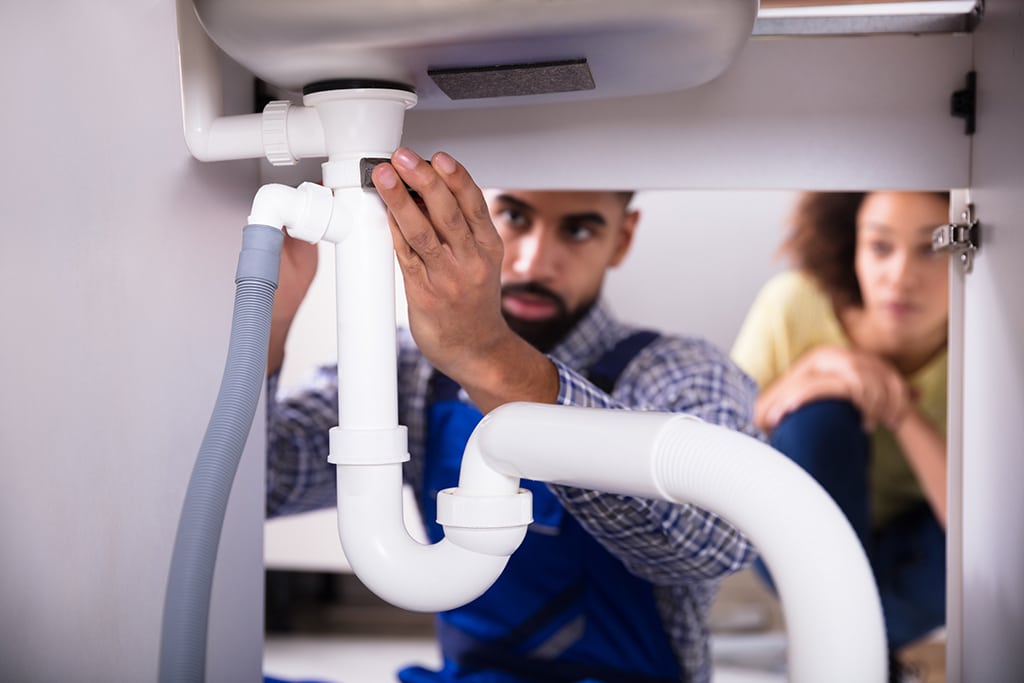Approaches to Address a Blocked Drain Before Calling in Experts
Approaches to Address a Blocked Drain Before Calling in Experts
Blog Article
Just how do you actually feel when it comes to Tips for Dealing with Clogged Drains and Sewer Lines?

Introduction
Handling an obstructed drain can be a discouraging experience, interfering with day-to-day tasks and potentially triggering damages to your property. However, before reaching out to pipes specialists, there are actions you can require to address the issue on your own. In this guide, we'll explore do it yourself solutions and preventive measures to take on an obstructed drain properly.
Recognizing the Problem
The first step in addressing an obstructed drainpipe is acknowledging the indications. Slow-moving drainage, gurgling sounds, foul odors rising from drains, or water backing up prevail indicators of an obstructed drainpipe. Determining these indicators early can help avoid further problems.
Picking the Right Pipes Service
When selecting a plumbing service, take into consideration factors such as experience, licensing, and client testimonials. Pick a reputable plumber with a track record of quality workmanship and clear prices methods.
Cost Factors to consider
The price of expert drainpipe cleaning services can vary relying on the extent of the clog and the plumbing professional's rates. Request quotes from numerous carriers and ask about any kind of service charges to guarantee transparency and stay clear of surprises.
Security Precautions
When attempting do it yourself drainpipe cleaning, focus on safety. Put on safety handwear covers and eyewear to avoid contact with unsafe chemicals or germs. Never mix various drain cleansing products, as this can create harmful fumes.
Situation Researches
Real-life examples highlight the efficiency of DIY remedies and the value of timely specialist intervention in dealing with drain obstructions.
Common Causes of Obstructed Drains
Comprehending the aspects that add to drain clogs is vital for effective resolution. Typical wrongdoers include hair, soap scum, grease, food particles, and international items like hygienic products or paper towels. Tree roots getting into underground pipes can also cause significant blockages.
DIY Solutions
For small obstructions, a number of DIY solutions can be effective. Putting boiling water down the drainpipe can assist liquify grease and debris. Baking soda and vinegar or a mixture of salt and cooking soda can serve as all-natural cleaners. Making use of a plunger or plumbing snake to remove blockages is another alternative.
Tools and Tools
Having the right tools accessible can make DIY drain cleaning up more effective. A bettor is a functional device for clearing obstructions in sinks, commodes, and showers. A pipes serpent or auger can get to deeper blockages, while drain cleaning chemicals can be used carefully for stubborn blockages.
Preventive Measures
To avoid future clogs, taking on safety nets is critical. Set up drain guards or filters to capture hair and debris prior to they enter the pipelines. Consistently flush drains with warm water to dissolve oil accumulation, and avoid taking care of grease or strong waste away.
When to Call an Expert
While do it yourself services can settle minor obstructions, specific indications show the need for expert aid. Persistent blockages, foul odors in spite of cleaning up efforts, or multiple drains pipes supporting simultaneously are red flags that warrant expert intervention.
Verdict
By complying with the ideas detailed in this overview, you can properly tackle blocked drains and stop future pipes concerns. Whether going with DIY services or looking for expert support, timely activity is crucial to keeping a healthy and balanced plumbing system and protecting the stability of your home.
How to Clear a Clogged Drain Yourself (And When to Call In the Professionals)
What Can Clog a Drain
Dirt Skin flakes Hair Grease Soap scum Food Offset pipes Tree roots Small objects Mineral buildup DIY Tricks to Unclog a Drain
You can fix this! Once you have identified the source of the clog (or have a vague idea), you can try one or a combination of these fixes in order to clear your plumbing.
Wire Hanger or Snake
Untangle and clear out hair from a drainpipe with a homemade snake. Use a straightened-out wire hanger with a 90-degree angle hook to locate the clog and drag out any unwanted material.
Remember not to push the clog further down to where the wire hanger cannot reach! If you need to follow up with a plunger, give it a try. Your efforts might be more successful after it’s been wire-snaked.
If you want to get fancy and don’t have a wire hanger to spare, head to the store and pick up a hand-operated drain snake. You can get one for $10-$30. It may save you the hassle, and provide additional length to reach deep into the clogged pipe.
Plunger
A cup plunger has a suction cup attached to a wooden handle. The rubber creates a seal around the drain, and increases the pressure force of the plunger.
Plunge for 30-second increments to loosen the clog. This may need to be repeated over the course of 15-20 minutes. Once plunged, run the water to flush the remaining material out of the drain.
Remember– never use a plunger if you have used a chemical drain cleaner. These chemicals can splash up from the force of the plunger and cause serious injury or burns.
Boiling Water
Hot water can sometimes break up materials into a flushable amount. Dirt, grease, and soap buildup requires heat in order to unstick from surfaces.
Take your kitchen kettle and heat your water to a boil. Once it reaches a rolling boil, pour it directly down the drain into the blockage. Carefully follow with plunging, if necessary.
Don’t worry if this takes more than one try! It can often take multiple kettles and repeated plunging in order to clear a particularly stubborn clog.
Chemical Drain Cleaner
As a last resort, pick up a bottle of chemical drain cleaner. Drain-cleaning chemicals are potent, and not very good for the environment.
You may need to wear protective eyewear in gloves before handling your bottle of chemical drain cleaner. Follow the instructions printed on the bottle, and flush with water as soon as the instructions allow. Do not follow with plunging.
Baking Soda and Vinegar
As a safer alternative to chemical drain cleaner, baking soda and vinegar can create a chemical reaction that clears tough clogs.
Combine one cup of cleaning vinegar with one cup of boiling water, and set aside. Once you have done this, pour half a cup of baking soda down the drain. Give the baking thirty seconds to settle and cover a large portion of the problem drain.
Following the baking soda, pour down your vinegar and hot water solution. Once the vinegar and baking soda combine, the mixture will bubble and fix. Let this reaction fizzle in the drain for about an hour.
After an hour, follow with a kettle’s worth of hot water. The heat and liquid should flush out any remaining material.
When to Call a Plumber
If your DIY attempts haven’t cleared your clog drain, it’s time to call in a professional. It’s not worth losing access to your kitchen sink or high-traffic bathroom. A clog in a vital area can keep you from the things you’d rather be doing, and derail your routine.
Anytime a clog is causing water to spread is a time to call in a plumbing service. What starts out as a little bit of water can quickly grow into serious, expensive water damage.
Additionally, a serious clog can result in burst pipes or serious leaks. Make sure you know when to take it seriously!
https://myguysnow.com/how-to-clear-a-clogged-drain-yourself-and-when-to-call-in-the-professionals/

Hopefully you liked our section on What I learned from trying to deal with a clogged drain. Thanks a lot for taking the time to read our blog post. Enjoyed reading our entry? Please quickly share it. Help someone else find it. Kudos for being here. Come back soon.
Click Here Report this page